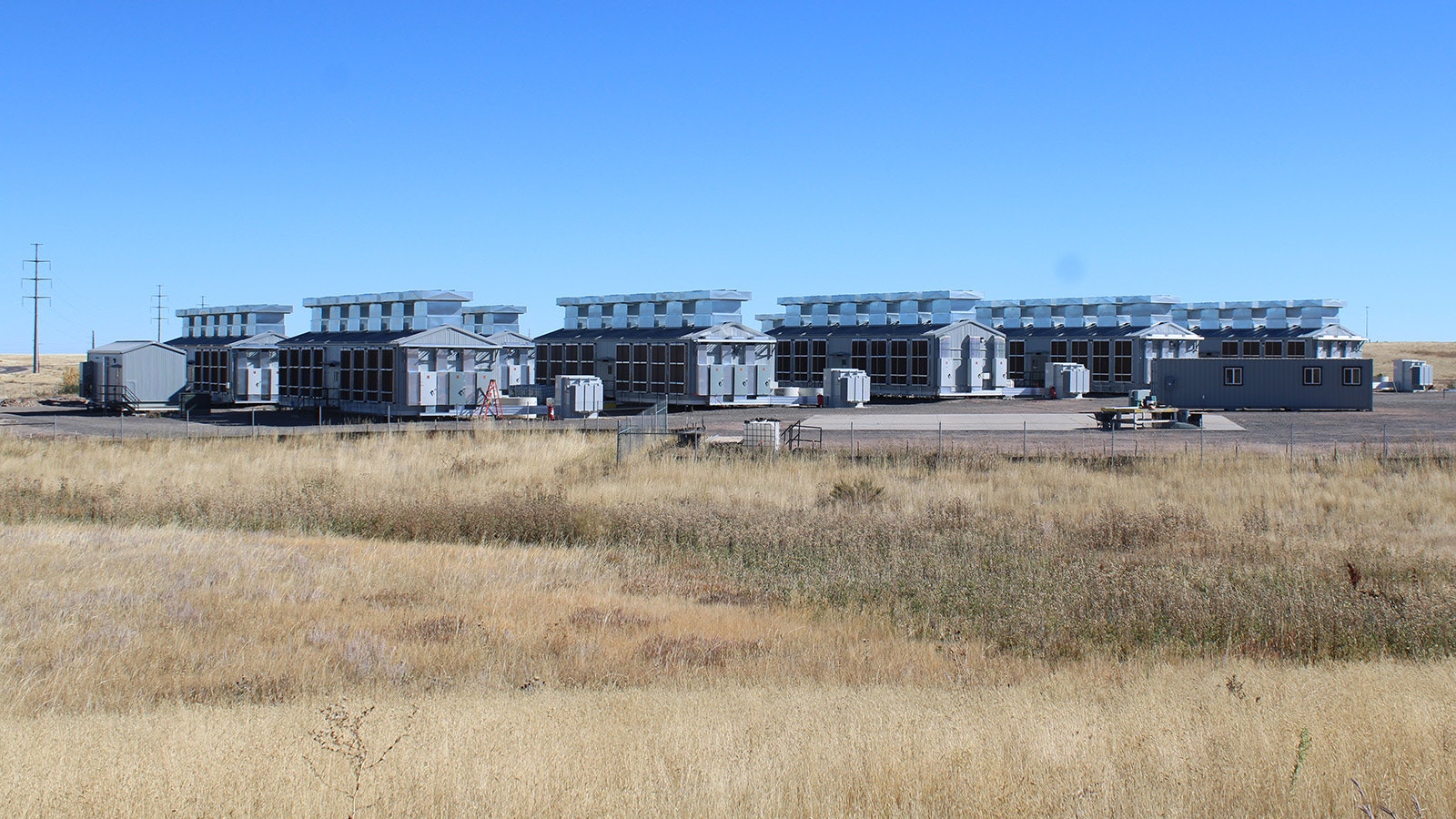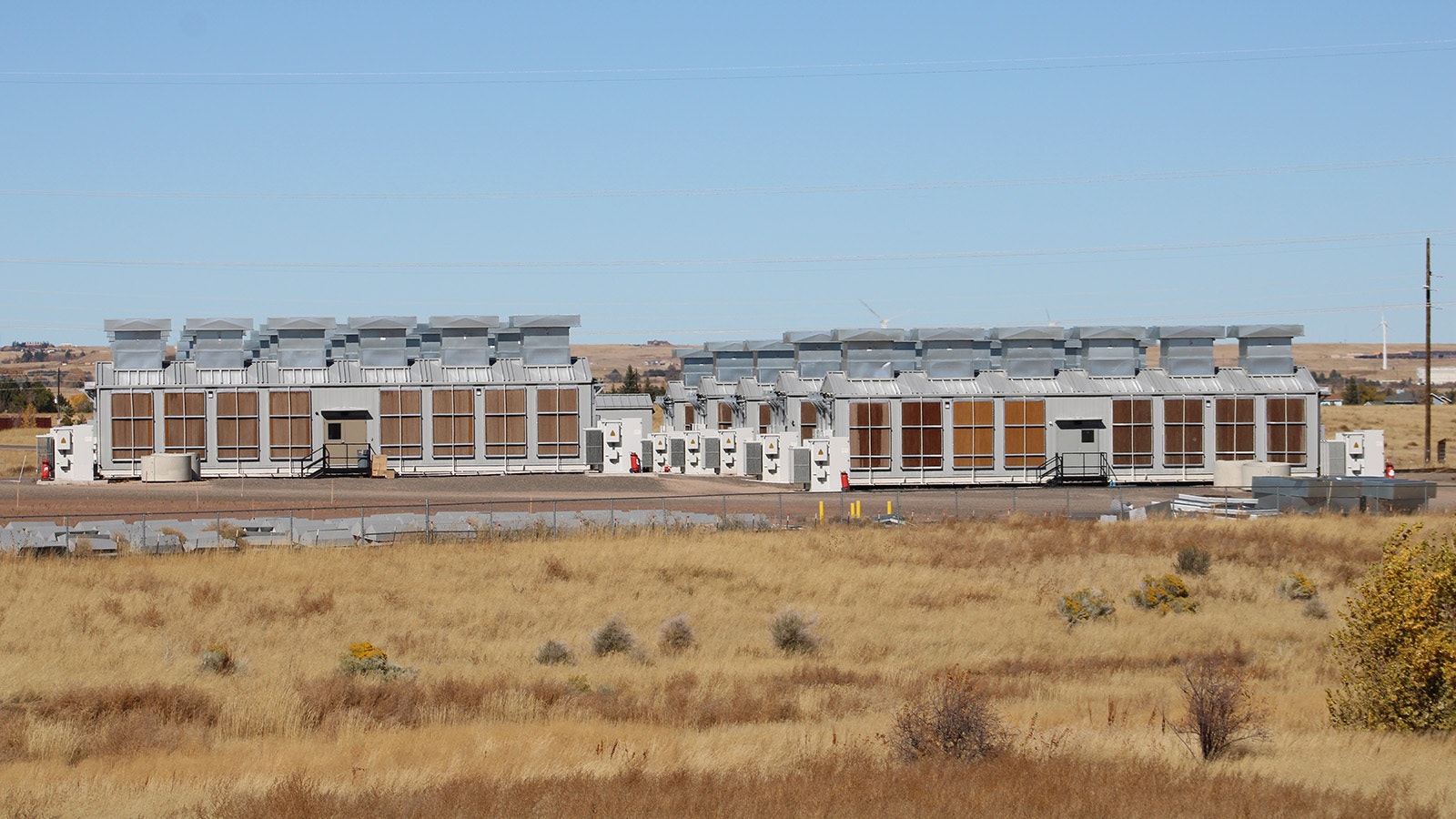A cryptocurrency mining operation in Wyoming with ties to China that’s being scrutinized by the federal government has Wyoming lawmakers concerned.
The bitcoin mine is located next to a Microsoft data center in Cheyenne that has supported the Pentagon and is within a mile of F.E. Warren Air Force Base, a facility that controls nuclear-armed intercontinental ballistic missiles.
Lawmakers Concerned
The New York Times reports that federal officials say they have been tracking the Wyoming operation for months.
In a 2022 report to the Committee on Foreign Investment, Microsoft warned that the location of the crypto operation could allow the Chinese to “pursue full-spectrum intelligence collection operations.” A government official told the Times that measures had been taken to mitigate potential collection of intelligence by the mine for the Chinese Communist Party (CCP).
The proximity of the operation to the data center and missile base specifically raises concerns for U.S. Sen. Cynthia Lummis, R-Wyoming, who has been very active in crafting cryptocurrency legislation.
“Sen. Lummis is concerned about the potential of the CCP spying on our military bases and will look to ways oversight can be conducted to ensure nothing nefarious is happening at this facility in Cheyenne,” said a spokesperson for Lummis.
A spokesperson for Gov. Mark Gordon said the governor feels similarly and is coordinating with the Wyoming Office of Homeland Security to monitor the situation.
“Like all Wyoming citizens, Governor Gordon is deeply concerned about potential threats to national security,” the spokesperson said. “Protection of Wyoming infrastructure and our national security remains the Governor’s highest priority.”
Related Lawsuit
In May, Bison Blockchain filed a $22 million lawsuit in Wyoming federal court against five companies based in Delaware and the Cayman Islands related to its bitcoin mines in Cheyenne.
Back in 2021, Bison Blockchain had set out with ambitious plans to develop and operate one of the largest Bitcoin mines in the U.S. in Wyoming. This effort aligned with crypto-friendly legislation passed into law in Wyoming around this time, incentivizing the growth of the industry in the Cowboy State.
The next year, Bison Blockchain entered into an agreement with MineOne Wyoming to develop two bitcoin mining facilities. Eventually, Bison Blockchain was pushed out from the operation by MineOne and Chinese-owned mining company Bitmain, which spurred the lawsuit over an alleged breach of contract.
Sean Murphy, a spokesperson for Bison Blockchain, told Cowboy State Daily that China is well aware of the power of bitcoin and its opportunities.
“The bitcoin network is the largest and most secure cyber network on the planet; we know this and the Chinese know this,” he said. “The Chinese are pushing out Americans — like us at Bison Blockchain — and using our electrical energy to mine Bitcoin.”

Security Risks
Murphy said the national security concerns about the mines in Cheyenne “are palpable and legitimate.”
“The spy balloon incident and proximity to military bases and data centers are not coincidences,” Murphy said. “We know Homeland Security, the Treasury Department and the Pentagon have all engaged to varying degrees and are aware of what is going on in Wyoming.”
The concerns about these mining facilities and potential larger Chinese intelligence gathering efforts on U.S. soil have gained steam in recent years with some states making efforts to ban Chinese and foreign ownership of land.
“Our country needs to take any threat from the CCP very seriously, which is why I have actively worked to ensure our adversaries, like China, cannot purchase farmland throughout our country, particularly near military bases,” Lummis said.
Court documents filed in the lawsuit Sept. 30 reveal that the Cheyenne operation is tied to Bitmain, a Chinese company that has claimed it controls 90% of the global market for bitcoin mining equipment.
One of the other companies tied to the mining operation is Bit Origin Ltd, which until last year was a Chinese pork processing company.
Li Jiaming, president of the company, told The New York Times that the company’s investors chose the Cheyenne site because they had secured an agreement from Black Hills Energy to provide it with power, not because they were seeking proximity to the Microsoft data center or the missile base.
Neither Jiaming or one of his business associates responded to Cowboy State Daily’s request for comment.
Court records show that another Chinese company involved in bitcoin mining, YZY Capital Holdings, also bought a separate plot of land near the Microsoft data center.
This company is run by a Chinese national who is a member of the Chinese Communist Party and whose biography says he served on a government advisory panel in Wuhan, China. YZY sold another property lot to the Chinese investment group that raised Microsoft’s concerns, according to court documents.
Murphy said he believes people representing MineOne and Bit Origin are represented by the same law firm as YZY Capital, Cheyenne-based Hathaway and Kunz.
“Wyoming and America should be aware and concerned about Chinese-owned bitcoin mining facilities,” Murphy said. “They are next to military bases and critical infrastructure, including substations and data centers housing national security data.”
Energy Suck
Bitcoin mines also put immense pressure on local power grids.
Bison Blockchain leased state land next to a large Black Hills Energy substation to run its operations off 30-45 megawatts of power. To put that number in perspective, Murphy told a legislative committee in September that the entire city of Cheyenne runs on about 100-120 megawatts.
There has been a recent surge in Chinese-owned bitcoin mines across the country. The Times identified at least 12 states where Chinese-owned or operated Bitcoin mines combine to use as much energy as 1.5 million homes. The industry as a whole in the United States is consuming enough energy to power more than 3 million households.
Some officials have expressed concern that bitcoin mining operations could put enormous strains on the energy grid if they worked in a concerted effort to wreak havoc, which could lead to blackouts and cyberattacks.
“The Chinese mine bitcoin here on our soil, with our power, and then send the bitcoin they mine right back to China,” Murphy said. “Chinese bitcoin miners represent a nexus of security, electrical grid and economic danger and risks at national, state and local levels.”
The spokesperson for Lummis said although she takes security threats — and particularly those from the CCP very seriously — she finds that the argument that bitcoin’s use of energy is “more dangerous than any other data center is patently false and is nothing more than trying to pick winners and losers with who can access the energy grid.”
Trust, But Verify
The Times did not find any direct links between the owners of the Cheyenne mines and the Chinese government or Communist Party. It did find that a subsidiary of the company lists a Communist Party guesthouse as its address.
State Rep. Barry Crago, R-Buffalo, has opposed efforts to restrict foreign ownership of land in Wyoming in the past, but told Cowboy State Daily that these mining operations need to be scrutinized.
“It’s something we better keep an eye on,” he said. “Do I have all the answers? Absolutely not, but I do think it’s something we need to keep an eye on.”
In its report, Microsoft also refrained from accusing the mine of engaging in nefarious activity, but said it’s still an activity that needs to be monitored.
“Microsoft has no direct indications of malicious activities by this entity,” the company said in its 16-page report. “However, pending further discovery, we suggest the possibility that the computing power of an industrial-level cryptomining operation, along with the presence of an unidentified number of Chinese nationals in direct proximity to Microsoft’s Data Center and one of three strategic-missile bases in the U.S., provides significant threat vectors.”
Leo Wolfson can be reached at leo@cowboystatedaily.com.





